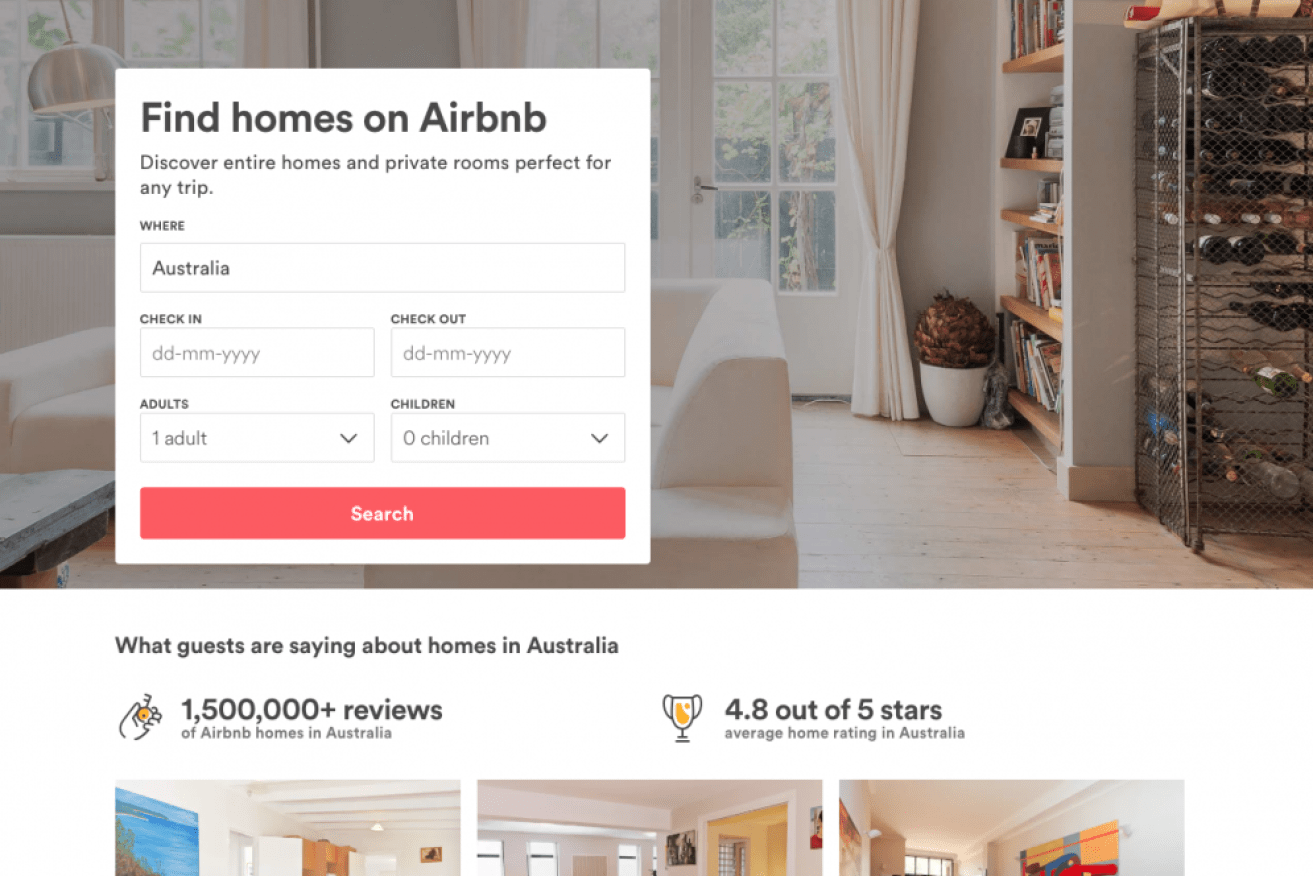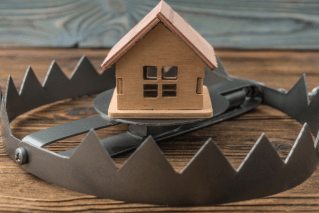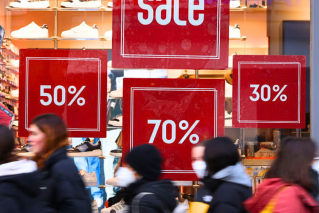Rising rents spark concerns about house-sharing websites


Experts fear the popularity of Airbnb is driving up rentals.
From New York City to Hobart, debate about the effect on rents of Airbnb and other short-term rental platforms rages on.
Peer-to-peer platform Airbnb has undoubtedly given travellers more choice in short-term accommodation. Since it was founded in 2008, more than 300 million guests in 191 countries have checked in to an Airbnb rental.
In Australia, as travellers seek value for money, and homeowners realise they can make more money that way than with longer-term tenants, that’s putting pressure on rents, and on wider housing affordability.
Hobart under pressure
House prices in the Tasmanian capital – up 12.7 per cent in a year – are making headlines, while CoreLogic says the amount of stock for sale has fallen 30.7 per cent.
CoreLogic says Hobart rents rose 11.7 per cent in the 12 months to the end of March. Hobart residents on low incomes struggle to find affordable rentals – and some have even resorted to camping in the city’s showgrounds.
Affordable housing advocates say Airbnb is part of the problem.
“Hobart has seen a rapid decline in the number of affordable and suitable private rental properties for people on low income as tourism has boomed, leading to … rapidly rising housing prices flowing through to the rental market,” Anglicare’s 2018 Rental Affordability Snapshot states.
The problem is most pronounced in tourism destinations such as Hobart and the north coast of NSW, it says.
Anglicare CEO Kasy Chambers said short-term-rental platforms such as Airbnb had chipped away at affordable rental housing stocks for years, to the detriment of small communities. In Hobart, the number of available rental properties had declined significantly in the report’s nine years.
Hobart landlords are increasingly making “economically rational decisions” to list properties on Airbnb rather than to long-term local tenants, Ms Chambers said.
“It removes stock from the market, which makes it more difficult for people to get a rental, but it also means that remaining rentals get more expensive.”

Kasy Chambers says landlords can earn much more through Airbnb. Photo: Getty
Anglicare also notes a similar situation in holiday favourite Byron Bay and surrounding small towns.
“On the north coast of NSW [short-term rentals] have been very damaging to communities,” Ms Chambers said. “Small communities find themselves with very few people who can afford to continue living there.”
Anglicare wants government intervention to help resolve the issues.
Airbnb is fighting similar battles overseas. In New York, government officials have blamed it for a 10 per cent rise in rents, while Paris, London, and Amsterdam have regulated the number of nights a home can be rented on Airbnb.
The ‘summer bump’
But other reports dispute the effect of home-sharing platforms on rents.
In 2016, the Grattan Institute’s Jim Minifie found the overall effect was likely to be modest, although more pronounced in certain areas.
“Long-term tenants have clearly been displaced from inner-city beachside suburbs where, in a few cases, up to 15 per cent of homes are now listed as available for at least part of the year for short-stay rentals on platforms,” his report said.
Last year, the Tenants’ Union of NSW said it had found little Airbnb activity that would affect the private rental market in Sydney.
“Airbnb has shone a spotlight on the issue but it’s an effect that’s been around for decades,” senior policy officer Leo Patterson Ross said.

Inner-city beachside areas were most likely to notice the effect. Photo: Getty
But the union did believe Airbnb could have “a very significant effect at particular times of the year in a particular location”. Mr Patterson Ross pointed to a “summer bump” in beachside areas, with landlords able to charge a premium by evicting long-term tenants and listing the property on Airbnb.
“It’s clear that in some areas, particularly tourist-focused areas, people will jump into whatever will make them the most money, and that can have a serious impact on availability and affordability,” he said.
“We think, in all tenancies, landlords should have to have a reasonable ground for eviction. They should not be able to do so with no grounds at all.”
Mr Patterson Ross said that, ultimately, more data was needed.
“We don’t have good data on Airbnb, they’re the only ones that do, and they’re not sharing,” he said.

Airbnb says most of its hosts are ordinary homeowners. Photo: Getty
An economic lifeline?
Airbnb argues its listings represent only a tiny amount of available housing stock, and it is not a major factor in housing affordability.
“Housing affordability is a wickedly complex problem that has existed long before Airbnb arrived on the scene less than a decade ago,” a spokesperson said.
Airbnb prefers to position itself as an economic lifeline for low and middle-income earners trying to earn extra income. It says 52 per cent of its hosts are low to moderate-income earners, with 48 per cent of host income going towards regular household expenses, such as rent and groceries.
A typical local Airbnb host earns about $100 a week, or $5400 a year, from home sharing.
“Hardly a fortune or a king’s ransom, but enough to help pay the mortgage or bills,” the spokesperson said, saying government policy was really to blame for housing affordability issues.
“Any mature and prudent debate must look at the real drivers of affordability, like negative gearing and the planning system.”
HomeAway, which owns holiday rental website Stayz and is a major competitor of Airbnb, says such platforms drive economic and jobs growth. They help “mum and dad investors” to recoup costs by letting out their own holiday homes when not in use.
“This helps more Australians to realise the dream of owning a holiday home in their preferred location,” a spokesperson said.








